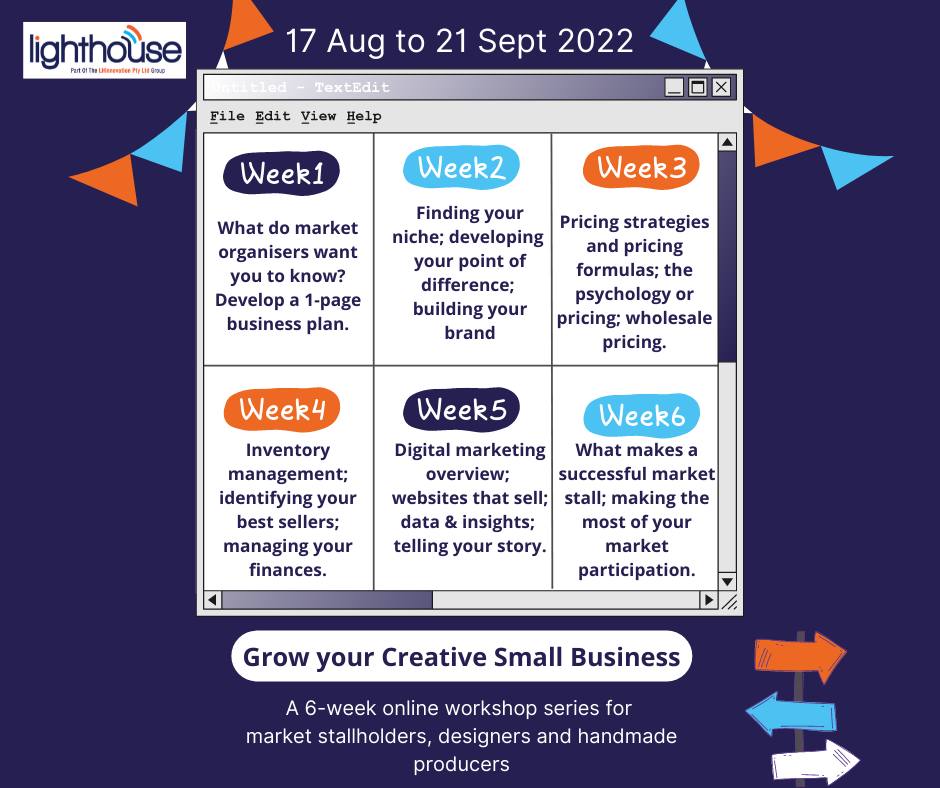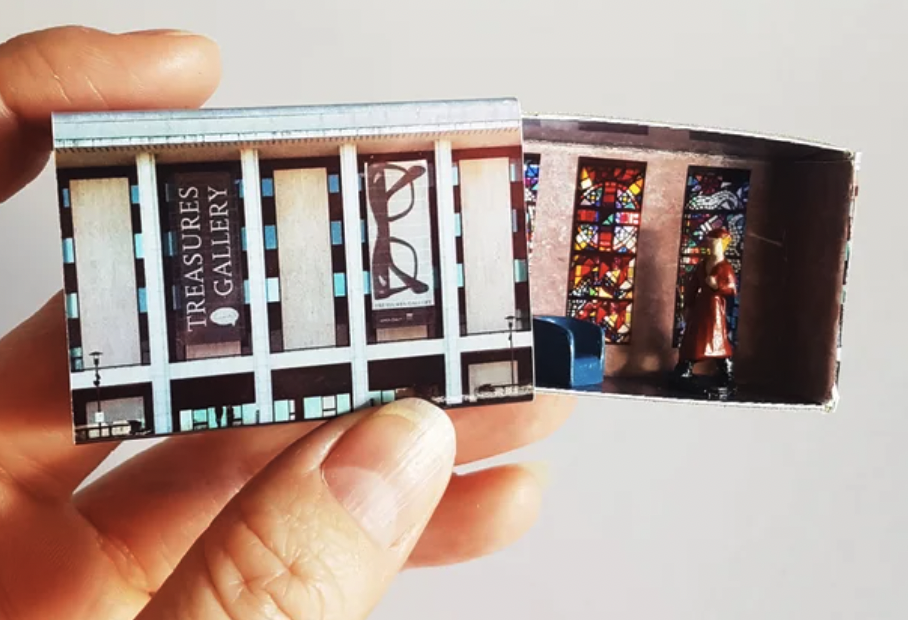 When the COVID -19 pandemic hit and shops and markets shut, local sales dropped exponentially for Queanbeyan-based company Suitcase Dollhouse, makers of unusual miniatures and upcycled suitcase dollhouses. Fortunately, their long-term investment in a variety of sales channels as well as their willingness to explore new product lines paid off.
When the COVID -19 pandemic hit and shops and markets shut, local sales dropped exponentially for Queanbeyan-based company Suitcase Dollhouse, makers of unusual miniatures and upcycled suitcase dollhouses. Fortunately, their long-term investment in a variety of sales channels as well as their willingness to explore new product lines paid off.
“We still had online sales, which went up and down but were still good at Christmas time,” says Marisa Martin co-founder of Suitcase Dollhouse.
“In fact, last Christmas was huge, the biggest Christmas we've had ever had in terms of sales.”
COVID also provided Marisa and co-founder David Tynan with an opportunity to develop new product lines.
Listening to your customers - Introducing new product lines
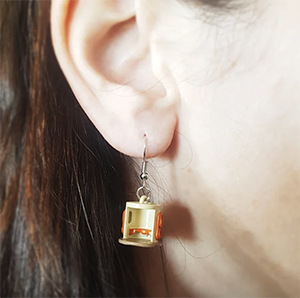 According to Marisa, while they were already creating miniatures of Canberra’s iconic bus shelters, during the Covid lockdown they started developing more product lines for other Canberra icons and expanding the bus shelter line. This became their biggest seller locally.
According to Marisa, while they were already creating miniatures of Canberra’s iconic bus shelters, during the Covid lockdown they started developing more product lines for other Canberra icons and expanding the bus shelter line. This became their biggest seller locally.
The name ‘Suitcase Dollhouse’ didn’t seem to suit the growing line of Canberra miniatures, so they ended up creating a new line called “Burley and Brave” and now have two trading names under their ABN.
“Burley and Brave, focuses on our Canberra products and then we still do Suitcase Dollhouse, which does sell locally but sells much better overseas. We have one Etsy store with everything in it, but we have separate websites for each line,” says Marisa.
Marisa said last Christmas they had to buy more machines to keep up with demand for their Christmas decorations of Canberra icons.
“They sold like hotcakes and we couldn't keep up with demand. So, we ended up buying another printer and I think we'll expand the range this coming year”.
Marisa said that people tend to collect ornaments related to their travels.
“When I was in America, everywhere you went you could buy an ornament of the location. That's a big thing in the States and while its less so here, I think it's growing. I think people realise that the Christmas tree becomes a memory box.”
Marisa says that it’s very important to listen to what the customer wants.
“We were asked by one of the stores if we do Christmas decorations. And I said no, but we can. It was a good idea and worked really well. Listening to people on the ground who can tell you what is selling or what they think will sell, is really important”.
“Fortunately, we have the printers and production is very quick, which means I can design a prototype and have it in my hand that afternoon or the next day. This allows us to get a product to market very quickly”.
People like the familiar - Art in matchboxes
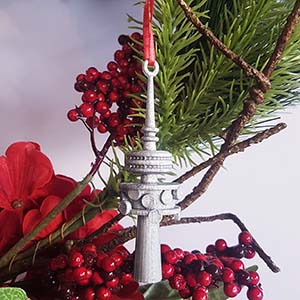 Another product line that has been introduced has been the recreation of famous paintings of rooms as a three-dimensional object in a box. For example, a tiny version made to fit inside a matchbox of Van Gogh’s famous painting of his bedroom.
Another product line that has been introduced has been the recreation of famous paintings of rooms as a three-dimensional object in a box. For example, a tiny version made to fit inside a matchbox of Van Gogh’s famous painting of his bedroom.
Marisa says, “I just did that because I love art, and these are public domain paintings. They're classic paintings that are very, very old and these have become our best seller overseas”.
“Having been in this business for several years, I know people buy things they recognise. They recognise the art; they recognise the bus shelter - they want stuff they already know. We have found that new characters don't sell as well but art is something they recognise”.
When it comes to product development this has led them to shift from trying to create original work which Marisa says breaks her soul a little, into stuff that people recognise, but she is doing it via her own drawing.
“It's a compromise between artistic expression and commercial reality and finding that middle ground,” says Marisa.
Sometimes your product isn’t used the way you intended - Friend in your pocket
It’s important to keep an open mind as some product lines can be used in ways that you never intended. One example of this is their “Friend in Your Pocket” line of matchboxes that have a little animal in a matchbox. They discovered that these were popular amongst the Autistic community.
“Children love them – it's a security thing, they can open the matchbox and play with the little animal. I had no idea that they would be used this way as that wasn't how I developed them”.
Marisa says other products play more of a marketing role, for example some of the bus shelter products take more work and are not as profitable but people love them and share them on social media or click on those items, but then buy other things from the shop.
“These products are great for getting our name out there.”
The importance of integrating platforms and leveraging your efforts
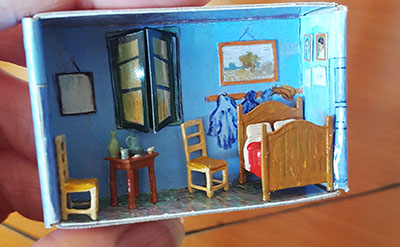 Marisa emphasises the importance of leveraging all the different marketing and sales channels they use. They have websites for Suitcase Dollhouse and Burley and Brave as well as selling through Etsy and in physical shops in Canberra. Pre-Covid they were also selling at markets. Marisa says that when she puts something on Pinterest she always makes sure to pin from their Etsy store so that when people click on the picture it goes back to the Etsy store.
Marisa emphasises the importance of leveraging all the different marketing and sales channels they use. They have websites for Suitcase Dollhouse and Burley and Brave as well as selling through Etsy and in physical shops in Canberra. Pre-Covid they were also selling at markets. Marisa says that when she puts something on Pinterest she always makes sure to pin from their Etsy store so that when people click on the picture it goes back to the Etsy store.
They have also had exposure through various online communities.
“In Germany there is a miniatures community and many of our German customers have found us through that.”
Marisa says that sales data plays a big role in helping them to decide where to focus their efforts and what products to make more of.
“The data is showing us that people like things that are useful - planters, vases, pen holders, mugs, things that they can then use. So, that is where we focus our efforts.”
Marisa says that one thing the last few years has taught them is that diversifying their income streams through the various product lines and channels has helped to de-risk their business as not all their income comes from one place. It has also created some new and unexpected opportunities.
For more information on Suitcase Dollhouse visit http://www.suitcasedollhouse.com/
For more information on Burley and Brave visit https://www.burleyandbravecanberra.com/#/


